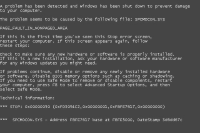The Ubiquitous Linking Manifesto
17 Dec 2021Yesterday, I was catching up on some reading and I came across something rather exciting - The Ubiquitous Linking Manifesto. This might first sound like something written for a rather out there UK political party, but it is a set of logical recommendations for something that is becoming ever more important in a world so dependent upon digital information and action.
The manifesto is a set of high level guidance that outlines why being able to link information and actions together is important from an efficiency perspective and how it can reduce cognitive load and make people’s lives that bit easier. Linking related digital elements means no more hunting around for things through laborious searches.
With support from software we can link related pieces of information, and link actions to the information. We can build bi-directional links. Links can be built manually, or by analytical approaches through automated approaches such as frequency analysis or machine learning driven updates.
Using ubiquitous links we can create an external structure to better understand our own knowledge and bring in the knowledge of others. We can also more easily act on the knowledge by providing insight with or action on the information.
While this might just sound like the world-wide web, or the Internet more generally, this is drawing in many other facets of our modern cyber-ecosystem. It isn’t just about HTTP(S) hypertext links between web pages. This incorporates a wider set of URI (Uniform Resource Identifier) - in particular application URI schemes which have proven to be a popular automation driver on several platforms over the last decade or so.
I would like to encourage others to read through the manifesto and consider registering as a signatory to the manifesto.
- Visit linkingmanifesto.org
Here is the message I added when I signed up earlier today.
Ease and reliability of access to information are what modern society is built upon from the Information Age. As we progress more deeply into an age of knowledge management and creation on a personal, group, and even societal level, we need to ensure an architecture is in place to support this. The Manifesto for Ubiquitous Linking sets out a clear and logical foundational component for this architecture. I hope to see both the support for and the delivery of the tenants of this manifesto increase, in time creating a greater capability and potential for more digitally integrated learning opportunities.
 Scroll the menu to find all the places to visit
Scroll the menu to find all the places to visit


